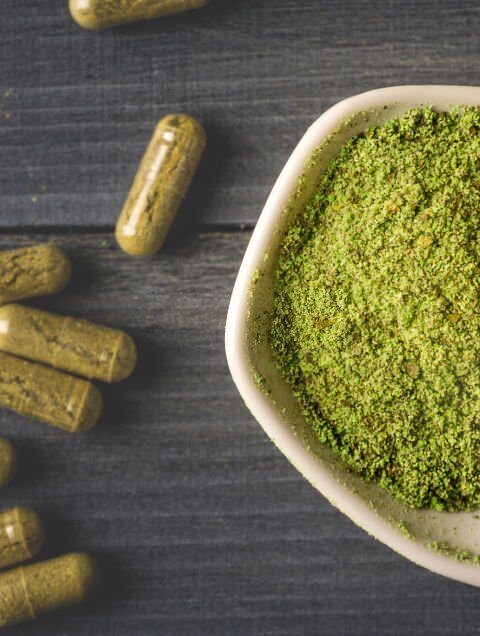When facing the daunting challenge of alcohol detox, finding the right medical support is crucial. One medication that often comes up in discussions about alcohol detoxification is Librium.
What is Librium?
Librium, also known by its generic name chlordiazepoxide, is a benzodiazepine. Benzodiazepines are a class of medications that have a calming effect on the central nervous system. Librium is often prescribed to manage anxiety, but it is particularly valuable in the context of alcohol detox due to its ability to reduce withdrawal symptoms and prevent complications.
How Librium Works
Librium works by enhancing the effect of a neurotransmitter called gamma-aminobutyric acid (GABA). GABA is a chemical messenger in the brain that inhibits nerve transmission, leading to a calming effect. When someone stops drinking alcohol suddenly, their brain can become overactive, leading to withdrawal symptoms. Librium helps by calming the nervous system, reducing these symptoms, and making the detox process more manageable.
The Role of Librium in Alcohol Detox
During alcohol detox, the primary goal is to safely manage withdrawal symptoms and prevent serious complications. Librium is often a key component of this process for several reasons:
1. Symptom Management – Librium helps alleviate common withdrawal symptoms such as anxiety, agitation, and insomnia. By mitigating these symptoms, patients are more likely to complete the detox process successfully.
2. Seizure Prevention – One of the most dangerous aspects of alcohol withdrawal is the risk of seizures. Librium can help prevent seizures by stabilizing the nervous system.
3. Reducing Delirium Tremens – Delirium tremens (DTs) is a severe form of alcohol withdrawal that can include hallucinations, severe confusion, and cardiovascular issues. Librium can help reduce the risk of developing DTs.
Dosage and Administration
Librium is usually prescribed in a tapering dose. This means that the dose starts high and is gradually reduced over a period of days to weeks. This tapering approach helps to wean the body off both the alcohol and the medication in a controlled manner. The exact dosage and duration of treatment will depend on the severity of the withdrawal symptoms and the patient’s overall health.
What to Expect During Librium Treatment
Understanding what to expect can make the detox process less intimidating. Here’s a breakdown of what you might experience during a Librium detox:
Initial Assessment
Before starting Librium, a healthcare provider will conduct a thorough assessment. This will include a physical examination, a review of your medical history, and an evaluation of your alcohol use. The goal is to determine the appropriate dosage and identify any potential risks or contraindications.
Beginning of Treatment
Once the treatment plan is established, you’ll begin taking Librium as prescribed. You may start with a higher dose that will be tapered down over time. Initially, you might feel a sense of relief as the medication begins to alleviate withdrawal symptoms.
Monitoring and Adjustments
Regular monitoring is crucial during detox. Healthcare providers will closely observe your response to the medication and make any necessary adjustments to the dosage. This ensures that the treatment is effective and safe.
Potential Side Effects
Like all medications, Librium can have side effects.
- Drowsiness
- Dizziness
- Fatigue
- Mild cognitive impairment
These side effects are usually mild and tend to diminish as your body adjusts to the medication. However, if you experience severe side effects such as difficulty breathing, severe confusion, or allergic reactions, it’s important to seek medical attention immediately.
Tips for a Successful Detox
While Librium can significantly ease the detox process, there are additional steps you can take to support your recovery:
1. Stay Hydrated – Drinking plenty of water helps your body flush out toxins and stay hydrated.
2. Eat Nutritious Foods – A balanced diet can support your overall health and help you regain strength.
3. Rest – Ensure you get plenty of rest. Your body is undergoing a significant process, and rest is crucial for recovery.
4. Follow Medical Advice – Adhere strictly to your healthcare provider’s instructions regarding medication and follow-up appointments.
5. Seek Support – Emotional and psychological support is essential. Consider joining a support group or seeking counseling to help you through this challenging time.
After Detox: Next Steps
Detox is just the beginning of the journey to recovery from alcohol dependence. After completing detox, it’s important to continue with a comprehensive treatment plan to address the underlying causes of addiction and prevent relapse. Here are some common steps that follow detox:
Rehabilitation Programs
Inpatient or outpatient rehabilitation programs offer structured environments where you can focus on recovery. These programs often include therapy, counseling, and education about addiction.
Therapy and Counseling
Individual therapy, group therapy, and family counseling can help you understand the root causes of your addiction and develop strategies for maintaining sobriety.
Support Groups
Joining support groups such as Alcoholics Anonymous (AA) can provide a sense of community and ongoing support from others who understand what you’re going through.
Lifestyle Changes
Making positive changes in your lifestyle, such as engaging in regular exercise, finding new hobbies, and building a support network, can help reinforce your commitment to sobriety.
Conclusion
Remember, detox is just the first step in the journey to recovery. With the right support and resources, achieving long-term sobriety is possible. If you or someone you know is struggling with alcohol dependence, don’t hesitate to seek professional help.







